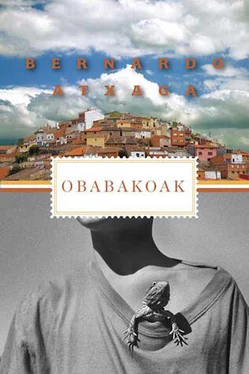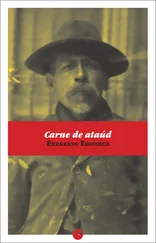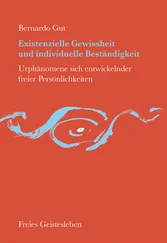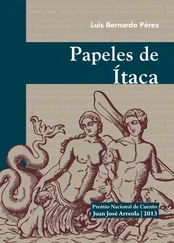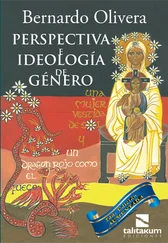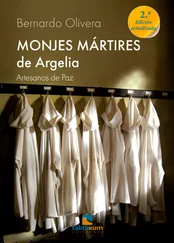Bernardo Atxaga - Obabakoak
Здесь есть возможность читать онлайн «Bernardo Atxaga - Obabakoak» весь текст электронной книги совершенно бесплатно (целиком полную версию без сокращений). В некоторых случаях можно слушать аудио, скачать через торрент в формате fb2 и присутствует краткое содержание. Год выпуска: 2010, Издательство: Graywolf Press, Жанр: Современная проза, на английском языке. Описание произведения, (предисловие) а так же отзывы посетителей доступны на портале библиотеки ЛибКат.
- Название:Obabakoak
- Автор:
- Издательство:Graywolf Press
- Жанр:
- Год:2010
- ISBN:нет данных
- Рейтинг книги:3 / 5. Голосов: 1
-
Избранное:Добавить в избранное
- Отзывы:
-
Ваша оценка:
- 60
- 1
- 2
- 3
- 4
- 5
Obabakoak: краткое содержание, описание и аннотация
Предлагаем к чтению аннотацию, описание, краткое содержание или предисловие (зависит от того, что написал сам автор книги «Obabakoak»). Если вы не нашли необходимую информацию о книге — напишите в комментариях, мы постараемся отыскать её.
Obabakoak
The Observer
Obabakoak — читать онлайн бесплатно полную книгу (весь текст) целиком
Ниже представлен текст книги, разбитый по страницам. Система сохранения места последней прочитанной страницы, позволяет с удобством читать онлайн бесплатно книгу «Obabakoak», без необходимости каждый раз заново искать на чём Вы остановились. Поставьте закладку, и сможете в любой момент перейти на страницу, на которой закончили чтение.
Интервал:
Закладка:
To any who would listen he said: “I’m running away from Death and I need somewhere to hide.”
But the people were frightened at the mention of Death and they all shut their doors to him.
For three, four, five hours, the servant walked the streets of Isfahan in vain, knocking at every door and growing wearier by the minute. Shortly before dawn he reached the house of a man named Kalbum Dahabin.
“In the marketplace in Baghdad this morning Death gave me a threatening look and so I have fled the city to seek refuge here. Please, I beg you, give me shelter.”
“You can be sure of one thing, if Death gave you a threatening look in Baghdad,” said Kalbum Dahabin, “he won’t have stayed there. He’ll have followed you to Isfahan. He must be within our walls already for the night is nearly over.”
“Then I am lost!” cried the servant.
“Don’t despair yet,” replied Kalbum. “If you can stay alive until sunrise, you’ll be saved. If Death has decided to take you tonight and he fails, then he’ll never be able to carry you off. That is the law.”
“But what should I do?” asked the servant.
“We’ll go straight to my shop in the square,” ordered Kalbum, shutting the door of his house behind him.
Meanwhile Death was approaching the gates of the city of Isfahan. The sky was beginning to grow light.
“Dawn will be here at any moment,” he thought. “If I don’t hurry I’ll lose the servant.”
At last he entered Isfahan and sniffed the thousand smells of the city, searching out the servant who had fled Baghdad. He instantly discovered his hiding place: Kalbum Dahabin’s shop. He was off like a shot, running in that direction.
A light mist hung over the horizon. The sun was beginning to regain possession of the world.
Death reached Kalbum’s shop. He flung the door open and… he couldn’t believe his eyes. For in that shop he saw not just one servant, but five, seven, ten, all identical to the one he was looking for.
He gave a sideways glance at the window. The first rays of sun were already filtering through the white curtain. What was going on here? Why were there so many servants in the shop?
He had no time to find out. He grabbed one of the servants in the room and rushed out into the street. Light was flooding the whole sky now. That day the neighbor who lived opposite the shop in the square was cursing and furious.
“When I got out of bed this morning and looked out the window,” he said, “I saw a thief running off with a mirror under his arm. A thousand curses on the blackguard. A good man like Kalbum Dahabin, the maker of mirrors, deserves to be left in peace!”
Mr. Smith
SOMEONE WAS WAVING to us as he approached the bench where we were sitting. The cemetery path was half in darkness and we could not at first make out his face and — bearing in mind that we knew no one in that village — we simply assumed he was one of those enthusiastic types you get at all fiestas, the sort who feels happy and wants to be everybody’s friend. But, gradually, his silhouette grew clearer. We saw something white on his head.
“He’s very tall. He must be over six foot five,” I said to my friend.
“And he’s wearing a hat,” my friend said to me.
“And he’s got white hair and a beard.”
“Therefore…”
“It must be the old man from the highway café,” we concluded, both exploding in laughter at the same time. When he reached us, the old man leaned his back against the lamppost next to the bench.
“I know a much better story than that!” he exclaimed by way of greeting.
“He seems to be following us around almost the way Death followed the servant from Baghdad,” I whispered to my friend.
“No, it’s not that,” my friend replied. “It’s just that, like you, he’ll do anything in order to get to tell his story. There’s no doubt about it, he’s your natural soul mate.” Then to the old man he said, “Do come and join us.”
The old man came over to us but indicated with a gesture that he preferred to remain standing.
“Would you like some beer?” my friend asked.
He shook his head.
“I prefer whiskey,” he said.
“You say you know a better story. But better than what?” I asked him. I wanted to find out just how aware he was of what he was saying.
“Baghdad, Isfahan, bah!” he replied.
My friend and I looked at each other. He wasn’t as crazy as he looked.
“What’s your name?” we asked him.
“Smith. My name’s Smith.”
This time it was his turn to laugh.
“At least tell us where you’re from. You’re not really a stranger to these parts, are you? Were you born around here?”
“Be quiet! My name is Smith!” he said, adopting a fierce expression and placing a finger to his lips.
“Sit down with us then, Mr. Smith,” my friend suggested. “Sit down and tell us that wonderful story of yours. You’ll find no better audience than us. And we promise never to ask you your real name.”
This time he did sit down in the space made for him by my friend, not on the lower part of the bench, but on the back, like a teenager.
“I’m afraid I can’t tell you the nice story now, the one about the monkey from Montevideo. Sorry, my friends.”
“That’s fine, but you must tell us another story,” we insisted.
“Something from your own life, for example. It’s not fair to promise us great things and then tell us nothing.”
“All right, my friends, a story. It’s not the nicest one, but the truest. Something that happened to me a long time ago.”
“Go on.”
He stood up again and brushed the dust from his jacket and his trousers as if wanting to spruce himself up a little first. Then he took out the small tape recorder from his pocket and, after a couple of failed attempts, pressed the Record button.
The red light was on, he had to begin. Mr. Smith gave a little sigh and began to tell us his story, which he intoned rather than spoke.
The road to the last word is a long one. I’ll pause again here and write down the story that Mr. Smith told us on that cemetery path. I’d be neglecting my duty if I didn’t. As someone once said: “Let nothing that has been lived be lost.”
I’ve transcribed the story almost exactly as it was on the tape, merely correcting, or rather, translating a few words and expressions originally in English. I felt they spoiled the flow of the narrative.
Just one more point. The story was untitled and it was my friend and I who gave it the title it now bears: “Maiden name, Laura Sligo.”
Here it is then. Over to Mr. Smith.
Maiden name, Laura Sligo
LAURA SHELDON (maiden name, Laura Sligo), was looking out from the village of La Atalaya at the vast expanse of jungle and listening to the songs of all the inhabitants of the Upper Amazon, to the song of the arambasa, of the papasí, of the carachupausa, of the duck known as the mariquiña, of the shy panguana that dies after laying only five eggs, and of the blue parrot known as the marakana. And to the song of the huapapa and of the wankawi and of the great yungururu. And also to the song of the sad ayaymaman, whose cry is like that of a lost child.
She was listening to the songs of all these birds and of a hundred more and of another hundred still.
But she was not only listening to the birds; she was also listening to the fish of the Unine, of the Mapuya, and of the other rivers in the region, as she sat there, at the door of a shack in La Atalaya, so far from Iquitos, gazing out at the jungle, especially at the green Tierra Alta, where the Unine rises, for that was where all the tracks left by her missing husband, Thomas Sheldon, pointed. It was late evening and Laura Sheldon (maiden name, Laura Sligo) was wondering what could have happened in that jungle, as she sat listening to the birds and to the fish, as she sat listening to the song of the brilliant akarawasu, of the gamitana, of the shiripirare and of the paichea, which grows to a length of nearly ten feet and has a tongue made of bone, and of the añashua, the electric eel that kills with one flick of its tail, and of the shuyua, which can walk on land, and of the paña or piraña and of the maparate and of the palometa, which is good to eat.
Читать дальшеИнтервал:
Закладка:
Похожие книги на «Obabakoak»
Представляем Вашему вниманию похожие книги на «Obabakoak» списком для выбора. Мы отобрали схожую по названию и смыслу литературу в надежде предоставить читателям больше вариантов отыскать новые, интересные, ещё непрочитанные произведения.
Обсуждение, отзывы о книге «Obabakoak» и просто собственные мнения читателей. Оставьте ваши комментарии, напишите, что Вы думаете о произведении, его смысле или главных героях. Укажите что конкретно понравилось, а что нет, и почему Вы так считаете.
